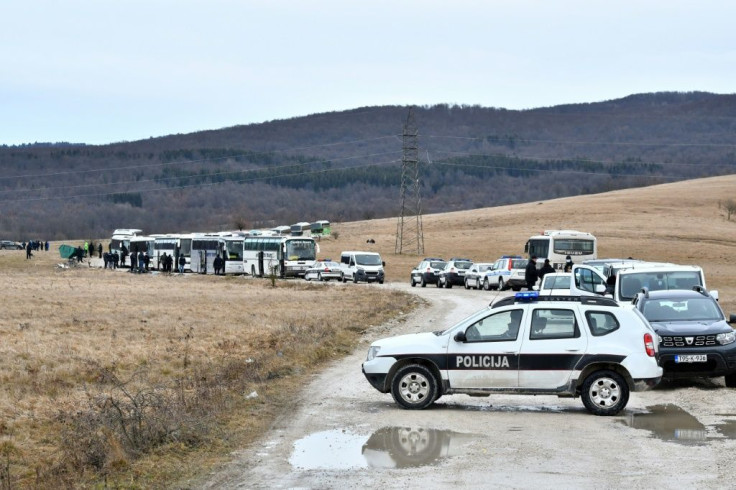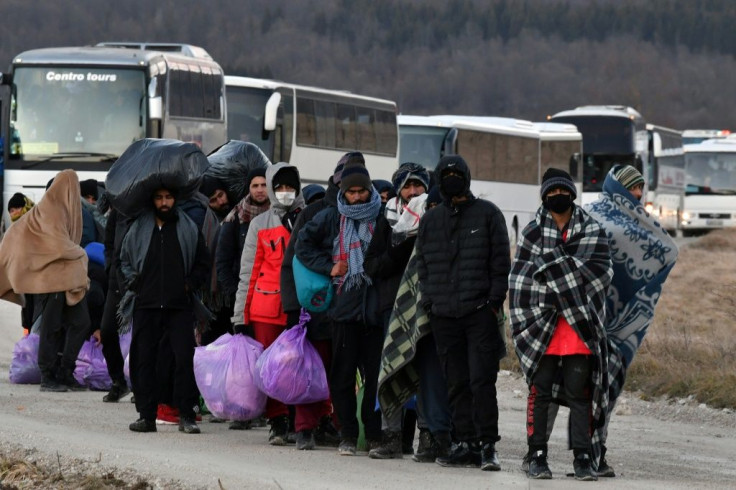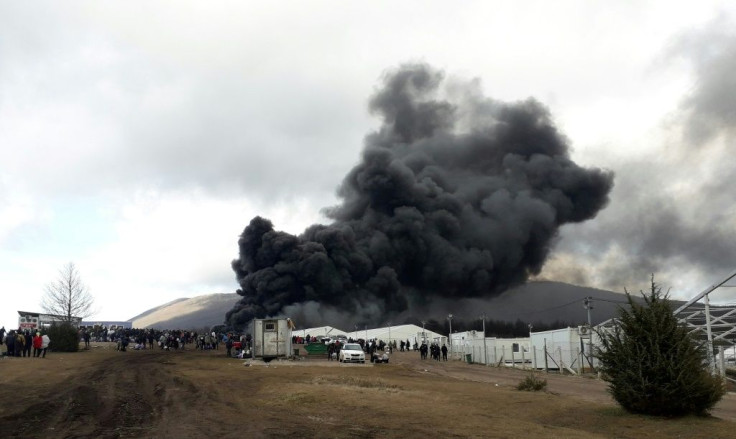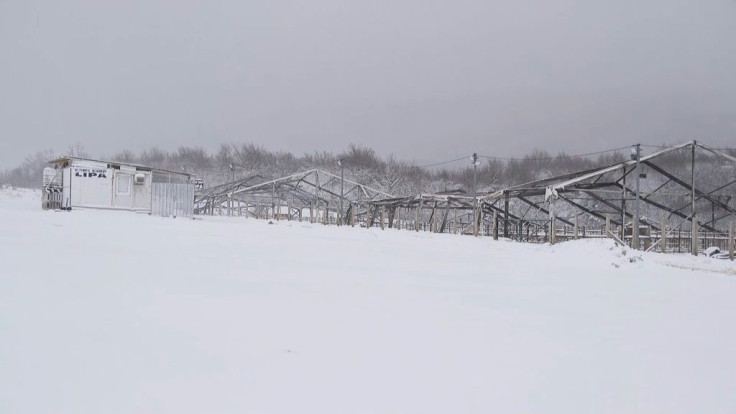Migrants In Limbo In Bosnia After Camp Fire
A thousand migrants from a burned-out camp were in limbo in Bosnia on Thursday, struggling with freezing temperatures and snow as efforts by local authorities to re-house them sparked protests from locals.
The migrants, mostly from South Asia and the Middle East, had previously been living in a squalid camp close to the village of Lipa and the border with European Union member Croatia.
The camp was set on fire on December 23 and police believe the blaze was started deliberately to protest the withdrawal of the UN's International Organisation for Migration (IOM), which had been running operations there.

Since then, efforts to find new shelter for the migrants have run into objections from local residents, with a plan to move them by bus on Tuesday to a former army barracks in the country's south abandoned.
The migrants boarded buses, but never left as residents in their destination village of Bradina protested against their arrival.
Eventually they were escorted back to the burned Lipa camp after spending a night and a day in buses.
"Unfortunately I learned to live like an animal," Nuha, a 35-year-old Iranian, told AFP.

"Whether they will take us elsewhere or leave us here, I don't care. It's even better to stay here since the border is not far and I will retry the 'game' in the coming days."
Migrants use the English word "game" for their attempts to illegally cross the border into Croatia from where they travel on to their final destinations, usually wealthy northern European countries.
For Nuha, the "most painful" is to be separated from his wife and son who was born "on the road" in Greece and who have been in Britain for the past two years.

Bosnia lies on the so-called Balkans route used since 2018 by tens of thousands of migrants heading towards Western Europe as they flee war and their poverty in the Middle East, Asia and in Africa.
Bosnia currently hosts some 8,500 migrants.
Nearly 6,000 of them are accommodated at reception centres while 2,500 to 3,000 have no shelter, Peter van der Auweraert, the head of the IOM mission to Bosnia, told AFP.
The IOM withdrew from the Lipa camp because of the poor conditions there.

It was set up in April as a temporary solution, and has since provided shelter to more than a thousand people.
Humanitarian organisations had been warning that the camp, made up of large tents without electricity or running water, was not equipped to accommodate people in winter.
The IOM has urged Bosnian authorities to reopen a reception centre in the nearby town of Bihac, but the local mayor and residents there are also staunchly opposed.
The centre, set up in an abandoned factory, was abruptly closed in early October due to protests.
Newly re-elected Bihac mayor Suhret Fazlic has vowed to prevent migrants from returning, saying that "it is about our safety."
On Wednesday evening, he joined dozens of Bihac residents who gathered in front of the former factory to prevent migrants from returning.
The IOM and several other humanitarian groups on Wednesday urged the authorities to find an "immediate solution".
"The lack of immediate action by responsible authorities risks grave consequences to human safety and lives," they said in a statement.
Meanwhile, Bosnia's grand mufti Husein Kavazovic warned against what he labelled an "inacceptable treatment" of migrants.
More than half of Bosnia's population of 3.5 million are Muslims.
The bloc's foreign policy chief Josep Borrell said in a statement Thursday that the "dire situation needs to be urgently addressed" by Bosnia's authorities and added that the centre in Bihac should be temporarily reopened "without any further delay".
The UN's human rights office on Twitter warned against "unacceptable suffering" of the migrants from the Lipa camp, calling for an urgent solution of the issue.
"We urge the authorities to fulfil their duty to provide protection and adequate living conditions."
© Copyright AFP 2024. All rights reserved.





















